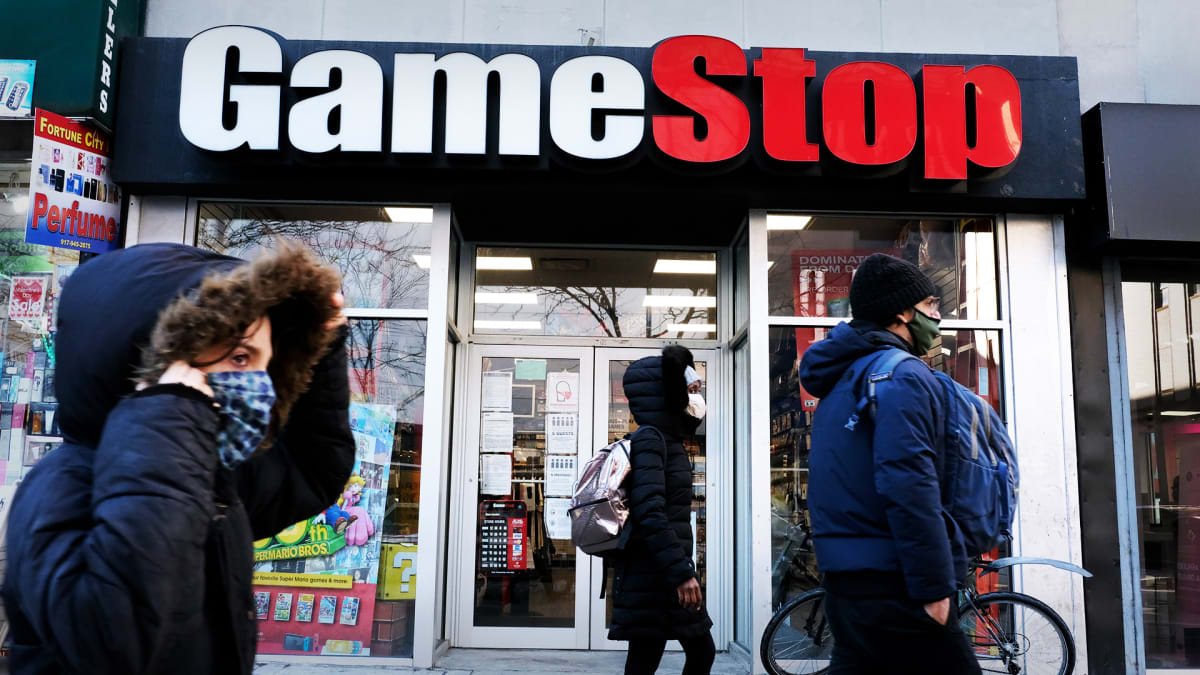
GameStop (GME) posted its seventh consecutive quarterly loss Wednesday, with disappointing revenue gains, as the video game retailer continues to focus on its transition into digital asset sales.
GameStop said its adjusted loss for the three months ending in October was pegged at 31 cents per share, just outside the Street consensus forecast of a 28 cents per share loss but down from the 35 cents per share loss recorded over the same period last year.
Group revenues, GameStop said, fell 8.5% to $1.186 billion, firmly shy of analysts' forecasts of a $1.355 billion tally. Expenses were on the rise again over the three months ending in October, with SG&A pegged at $387.9 million, or 32.7% of third quarter sales, when compared to the previous quarter. On an annual basis, SG&A was up around 20 basis points as a percentage of sales.
- Stock Market Today: Stocks Slide On Growth, Inflation Worries; China Loosens More Covid Restrictions
GameStop shares were marked 0.22% higher in after-hours trading immediately following the earnings release to indicate a Thursday opening bell price of $22.31, a move that would leave the stock with a year-to-date decline of around 42%.
GameStop, which is hoping to transition from a reliance on brick-and-mortar sales to a larger and more dynamic presence online, has slashed its headcount in order to minimize the cash burn required to build-out its non-fungible tokens, or NFT marketplace following a tie-up earlier this year with Australian blockchain startup ImmutableX.
The group is hoping its GameStop Wallet, which allows users to store, send, receive and use both NFTs and cryptocurrencies across decentralized apps, will form the lynchpin of its digital asset strategy.
GameStop had unveiled plan in September to sell FTX US gift cards at its stores, a partnership it said was part of a plan to "introduce more GameStop customers to FTX’s community and its marketplaces for digital assets".







